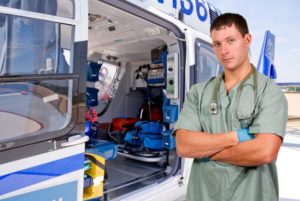Working with children is undoubtedly one of the most rewarding experiences. Becoming a travel nurse or a nurse, in general, is one viable path to working with babies and young children. That’s great news for anyone who wants to pair their passion for working with kids with a rock-solid travel nursing experience.
A part of the travel nursing benefits is that there are various opportunities to explore multiple positions where little ones are nearby. While it requires you to be extra careful and attentive to details, travel nursing is all worth it when you know you’re the reason behind a child’s smile or that look of relief on their parents’ faces. So whether you’re already a parent or just can’t help but fawn over the babies you meet, working with young kids is probably your preferred calling.
If this is the case for you, here are three travel nursing specialties to consider.
Pediatric Nursing
Pediatric nursing is a popular choice for aspiring nurses who want to work with infants, children, and adolescents. A pediatric registered nurse works in pediatrician’s offices or pediatric departments in hospitals but can also work outside healthcare facilities, such as schools and insurance or law firms. Once babies are discharged and begin developing at home, pediatric nurses care for them as they grow into adolescents. They provide routine primary care services, such as health maintenance and exams, developmental screenings, vaccinations, and treating illnesses or injuries when they occur.
Pediatric Intensive Care Unit (PICU) nurses work with infants, children, and teenagers. They are tasked with the important role of providing care and support for children with life-threatening diseases and illnesses. PICU nurses administer medicine, track vital signs, and support ill children and their families.
Pediatric travel nurse requirements include an RN nursing license, passing the NCLEX-RN, at least one year of pediatric nursing experience, and obtaining specialty certifications like a Certified Pediatric Nurse certification (CPN). It’s essential to be able to roll with the punches when working with kids, improvising and keeping them calm. Aside from all the organizational and relational skills required of RNs, an extra emphasis on communicating with children and helping them feel safe and cared for is always a plus.
Neonatal Intensive Care
The travel nursing NICU specialty is one of the most in-demand specialties today. This is because the demand has exploded for neonatal nurses who are well-equipped with the knowledge and skills to take care of babies in the most vulnerable state. As a NICU travel nurse, you’ll get to work with babies struggling to transition from living in their mother’s womb to surviving on their own. This includes premature babies and infants born with congenital disabilities, infections, cardiac malformations, or surgical problems. Some babies may have respiratory issues or serious nutritional needs that can be life-threatening.
NICU travel nurse requirements include the steps to becoming an RN and one or two years of pediatric experience. It may also benefit neonatal nurses to pursue the CCRN (Neonatal) or the RNC Certification for Neonatal Intensive Care Nursing (RNC-NIC). Because NICU patients are high-risk, neonatal nurses must think on their feet and make quick decisions if they notice a sudden change.
It can be the most rewarding job if you love infants and thrive in high-stress environments.
Perinatal Nursing
Perinatal nurses are specially trained nurses who work with women through pregnancy, birth, and the first months of their infants’ lives. Perinatal nurses educate pregnant women about their unborn child and teach them how to have a healthy pregnancy and relaxation techniques to help with stressful times during pregnancy. They also teach family members how they can support the patient during this time. They provide prenatal care to patients in obstetrical clinics and medical offices and also work in hospitals’ labor and delivery, antepartum, and postpartum units.
Perinatal travel nurse requirements include similar steps to becoming a NICU nurse—passing the NCLEX, becoming an RN, and one or two years of pediatric experience. Some perinatal nurses continue their education to attain a Master’s of Science in Nursing degree to become a Perinatal Nurse Practitioner or a perinatal nurse specialist. This way, they can diagnose, prescribe meds, and deliver babies.
Now that you have a basic understanding of some of the common types of travel nurses who work with babies, the decision is yours. If your passion lies in improving children’s health and comforting them in times of distress, you should consider one of the nursing specialties listed above. It is important to continue to do your research and find what really speaks to you. When you’re ready to take a travel nursing contract, visit our job board for available travel nurse jobs. See you soon!


